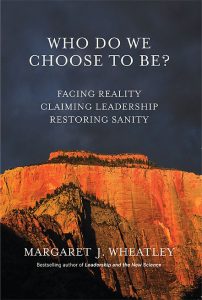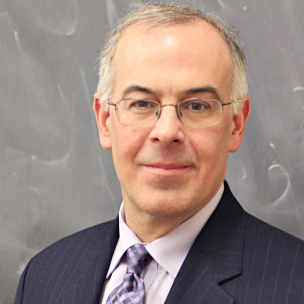It certainly makes sense, doesn’t it, that we would have as one of our most dominant metaphors for God that “he” is like a king. God is more powerful than the most powerful and the most powerful are the kings of the world. Anyone who is at the peak of or in charge of a particular field is the king. The kings of commerce, the kings of comedy, the kings of the sports world… So if God is even more powerful, then God is the King of Kings.
It turns out there is something more powerful than a king.
Just this week I saw a photograph that is going to be one of those iconic ones that will be remembered years from now. It shows a Hong Kong police officer with his back to us pointing his gun at a man facing him, only a few feet away, looking straight at him, arms outstretched, defiant. The officer is acting with the force of law, doing the bidding of the government, obedient to the “king.” And he didn’t shoot.

I once saw a murmuration of starlings. I was driving across southern Illinois and there was a huge flock of birds over the field to our right. It was a bobbing and weaving cloud doing a beautiful dance. You can find several videos on Youtube if you have never seen them. How do they do that? How do they know when and which way to turn?
I don’t know whether I have ever seen a slime mold. My understanding is that, if you see them at all, they look like your dog threw up on a log. If you watch the glop over time, you will see that it moves and that it consumes dead organic matter. And then it is gone. Just disappears. Slime mold is a single cell organism which can live all by itself, and thus goes unnoticed, or it can come together with others of its kind into the aggregated state that appears to be a single organism.
As scientists have studied starlings and slime mold one of the compelling questions has been, “How do they do it?” And the first assumption in both cases has been that some individual tells the others what to do and when to do it. There must be a lead starling. There must be a special kind of slime mold that tells the others when to get together.
Nope. It turns out that there is no King of the Starlings. What they are doing is all following the same rules of engagement. They all know how fast to fly, how far apart from others, and to fly away from predators and towards the center of the cloud. And the result is beauty.
The same is true for the slime mold. Except for the beauty part. There are cues in the environment that tell them to go into the aggregated or disaggregated state. No king.
Ants are similar. We think they have a queen, but it turns out that she is actually a sex slave. She doesn’t tell anyone what to do. All of the amazing things that ants do are the result of a set of rules they each follow, mostly, and by them create colonies with a lifespan many times longer than the lifespan of an individual ant.
This is how God creates.
As humans, our rules for how we engage with each other are far more complicated than they are for slime mold or starlings or even for ants. But the same principles apply. How we treat each other is how God is expressed in creation. No king. Just us, deciding to love or to hate. Don’t ever think you are just a human. God arises as everything, everywhere, and is nowhere more than in you and me.








